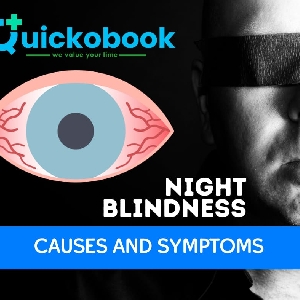
Everything You Need To Know About Night Blindness
Night blindness, medically known as nyctalopia, is a condition where an individual experiences diffi...
Read MoreYour trusted source for health insights, wellness tips, and medical expertise

Night blindness, medically known as nyctalopia, is a condition where an individual experiences diffi...
Read More
Book appointment & health checkups;
Online lab test & consult doctor online
Get the link to download the app